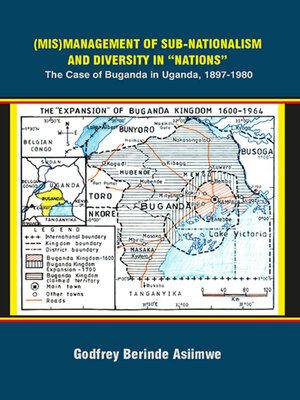(Mis)Management of Sub-Nationalism and Diversity in "Nations"
ebook ∣ The Case of Buganda in Uganda, 1897-1980
By Godfrey Berinde Asiimwe

Sign up to save your library
With an OverDrive account, you can save your favorite libraries for at-a-glance information about availability. Find out more about OverDrive accounts.
Find this title in Libby, the library reading app by OverDrive.



Search for a digital library with this title
Title found at these libraries:
| Library Name | Distance |
|---|---|
| Loading... |
The book revisits the complexity of the "modern nation" building project of African countries like Uganda, over pre-existing entities like Buganda. Through discourse analysis, the work historically unravels the intricate interlaces of self-preservation agency from the dawn of the new order through the supra "nationhood" architecture. It engages dominant narratives and streamlines critical analysis of the rationale and strategies of sub-nationalisms against the enduring challenge of nation-building. The work underlines the pivotal question of how a new 'nation' or kingdom could coexist with multiple, alternative claims to the loyalty of putative citizens. It interrogates the use of power, players and statecraft machinations through the complex matrix of nation-building projects. From a political economy approach, the work shows the stifling strategies of power holders, albeit with impactful re-battle. For this book, the story of Buganda in Uganda is compellingly illuminative.







